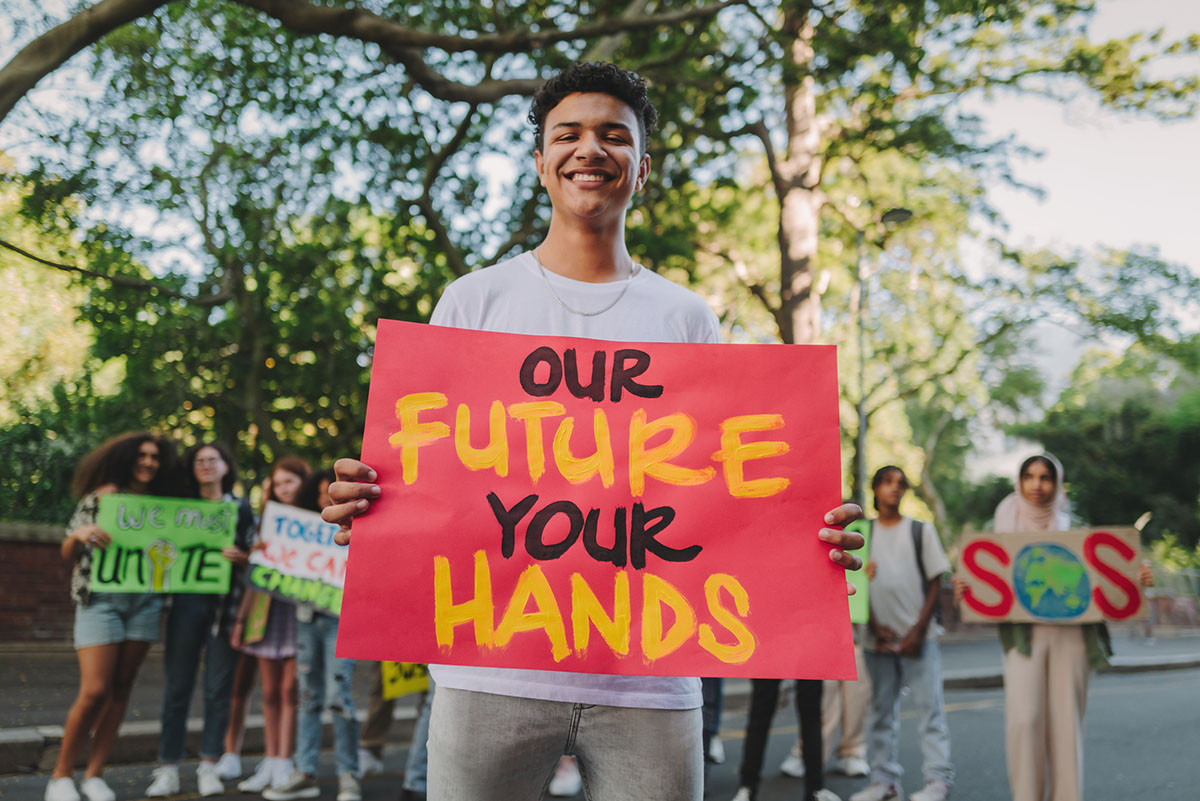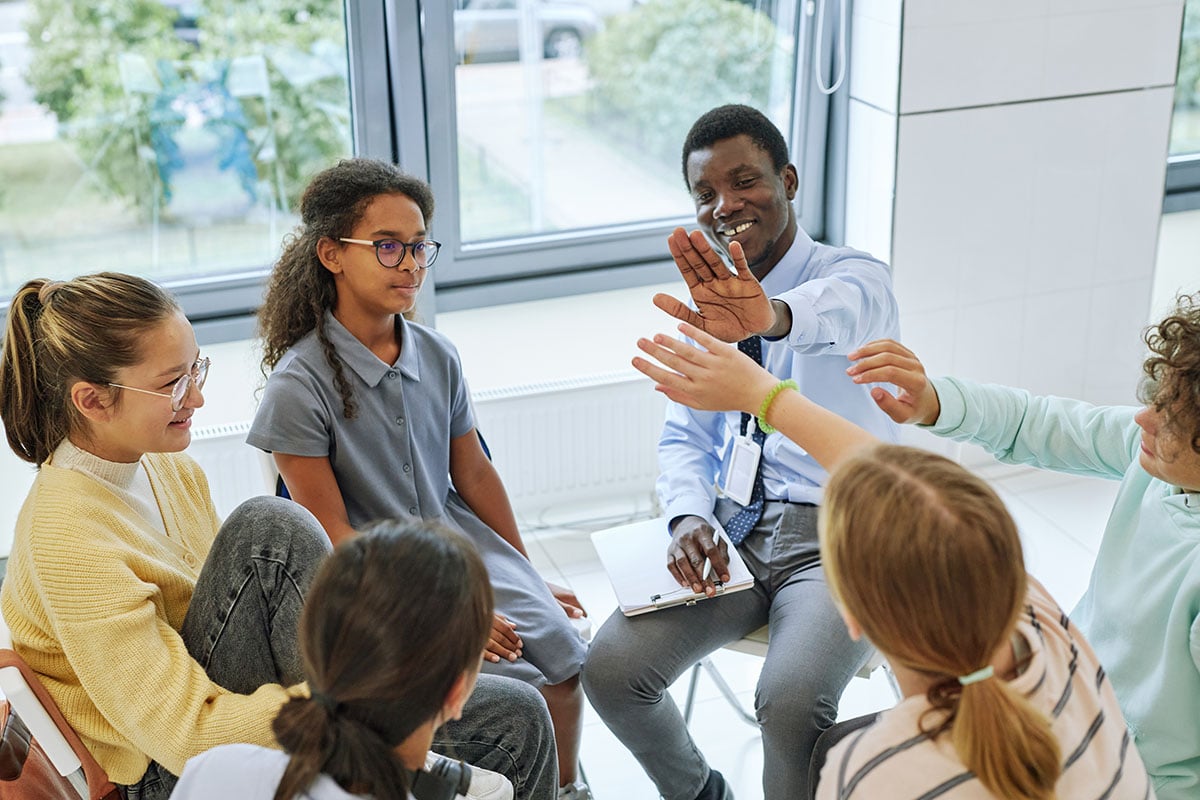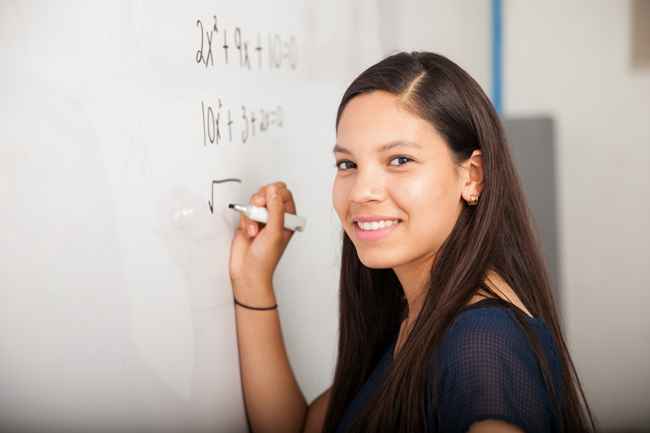Young people have been a pivotal force in major social movements around the world. Not only is civic participation important for society; this type of engagement improves young people’s well-being.
Even though young people cannot engage in more formal ways, like voting or serving on a jury, it’s important for practitioners to encourage students' understanding of citizenship and nurture their civic engagement early on.
What Is Student Citizenship?
Broadly, citizenship means engaging in civic and communal activities for collective well-being, such as participating in political processes and service to others. Our Roots of Engaged Citizenship Project identifies three key elements, in childhood and adolescence, at the root of good citizenship:
- Character strengths, such as responsibility and future-mindedness;
- Developmental competencies, such as emotion regulation and effective decision-making; and
- Supportive contexts and relationships in schools, families, peer groups, and community settings.
While civics education certainly involves content knowledge like identifying the branches of government, activities that encourage civic-mindedness can lead to deeper engagement in adulthood.
Measuring and Encouraging Strengths and Supports
Civic-mindedness is not something that needs to be created from scratch or delivered to young people. It grows from the strengths and supports—or developmental assets—that already exist in individuals, families, and communities. Search Institute’s developmental assets framework identifies 40 positive supports and strengths that are present in families, schools, and communities (external) and within young people (internal).
In particular, the positive values asset is something that young people need to develop strong guiding values to help them make healthy life choices. Some of those values include
- Caring, or placing high value on helping others
- Commitment to equality and social justice
- Integrity, and standing up for their beliefs
- Honesty
- Responsibility
- Restraint
Educators and practitioners can measure the level of developmental assets in their community by using the Developmental Assets Profile, a social-emotional assessment that helps us understand and target areas for growth.
Circle of Concern
One of the foundations of strong citizenship is empathy, or the ability to think beyond one’s own self-interest. Educators can help young people develop a sense of empathy by engaging them to think about different kinds of people and experiences. This is one of the ways that young people begin to understand concepts of fairness and justice.
Harvard University’s Circle of Concern activity is one way to help students, even in early elementary grades, begin reflecting on who they do, and don’t, feel empathy for. The activity encourages students to broaden their circle of empathy.
Activities like this one, which foster socio-emotional learning, plant the seeds of citizenship.
Social Capital
When young people are supported by a strong web of relationships, this network helps them develop their unique identities and emotional competencies. Student citizenship includes networks of support at home, in school, and in other community settings, which we call social capital. Social capital resources can be a springboard for young people to improve their lives and achieve their goals.
Our research on social capital indicates that young people who have high levels of social capital and strong, diverse, supportive networks benefit in many ways. They report more progress toward their goals and are more committed to helping others. Social capital improves their collective ability to effect social change.
Relationships and Citizenship
Our research on developmental relationships shows that young people are more engaged in their families, schools, and communities when they experience strong developmental relationships with peers and adults. These relationships provide a foundation for citizenship and involvement.
Search Institute’s Relationships Check is a tool for reflection and conversation about the status of your connections with young people. It can help you gauge strengths and areas for growth as someone who provides key support, nourishment, and encouragement for young people on their journeys to full civic participation.
A Better Future
Young people are inheriting a deeply troubled world, and their full participation is essential for our very survival. When the adults in their families, schools, and communities nurture their participation and help them build networks of support, they move toward adulthood with the social and emotional skills—and the resilience—needed to shape their future.




